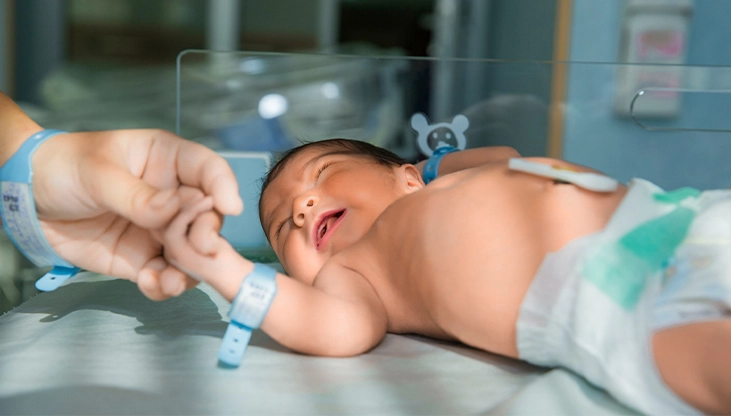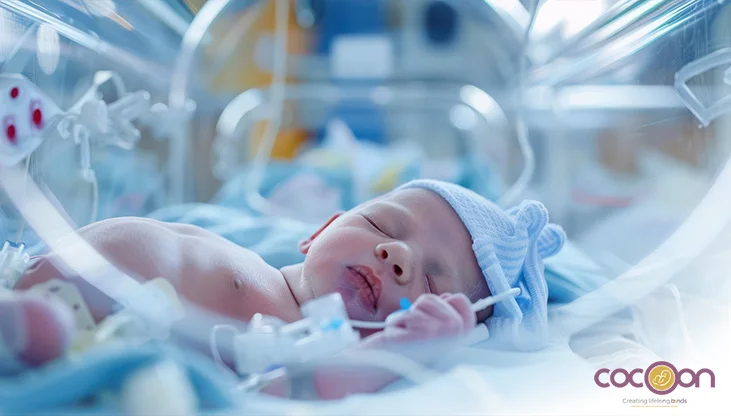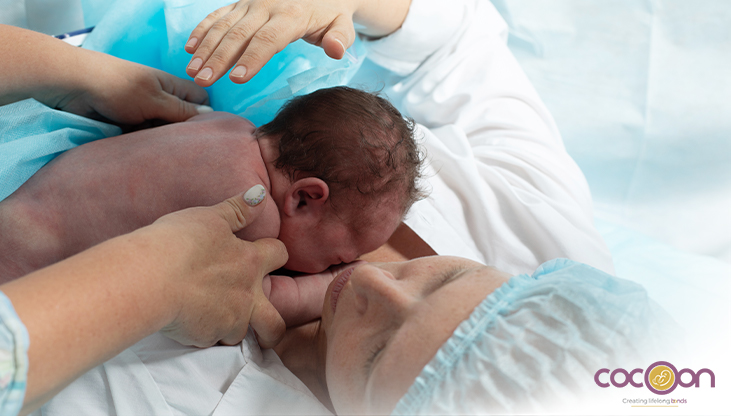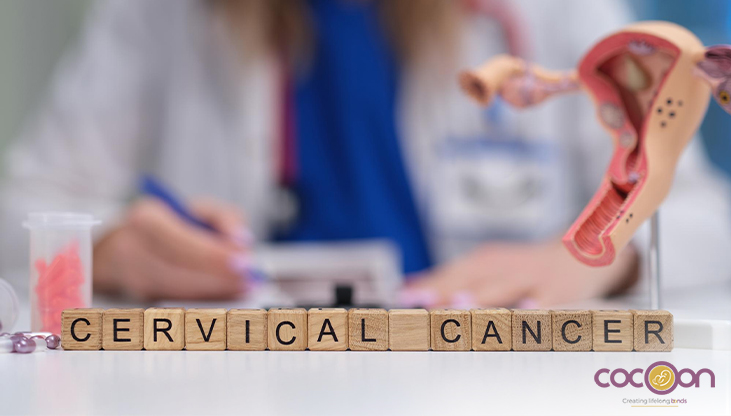For nine months, your newborn grows safely inside you, receiving every ounce of nourishment from you via the placenta and the umbilical cord. Kudos to you for following every instruction, protecting and nurturing this little life. However, in many cases, after birth, your baby may need a little extra care to adjust to the outside world. Preterm delivery, a complicated birth, or certain conditions can make it difficult for the baby to breathe or function properly.
This is where the NICU care for newborns plays a crucial role, a setting designed with love and advanced medical support. In the NICU for premature babies, extra monitoring is done, and all the medical equipment works toward one purpose: giving your baby the strength to adjust to the new world.
As a mom, it's natural to feel anxious, but know that your newborn is surrounded by experts who treat them as their own. With patience, trust, and care, the NICU becomes a bridge for your baby's life to brighter, healthier days ahead.
Read this article to know:
- What is an NICU in a hospital?
- Why do babies go to the NICU?
- Who Can Visit the NICU?
- What medical equipment is used in the NICU?
- The Best Neonatal Care & Best NICU
What is an NICU in a hospital?
An NICU stands for Neonatal Intensive Care Unit. It is a special area or care unit in a hospital where newborn babies who are born early, very small, or with any birth defect get extra medical care.
The babies who go to the unit are under close monitoring from expert doctors and nurses. The NICU has special equipment to assist babies to breathe, eat, and stay warm until they are strong enough to go home. It’s a perfect medical setting designed to give fragile newborns the best start to life.
Why do babies go to the NICU?
Babies are required to go to the NICU when they’re born too early, too small, or have trouble with breathing, etc. Inside the womb, everything is safe and protected; however, sometimes after birth, situations can get tricky, and babies just need a bit of extra care. The NICU team, with advanced equipment, helps them get stronger, and once they’re healthy, they can head out to explore the world.
Here are some possible reasons why a newborn requires admission to the NICU.
6 reasons your baby may be admitted to the NICU
- Premature (born too early) babies need extra help to develop properly.
- When the baby is showing signs of trouble breathing (perinatal depression), then they need oxygen support.
- If the baby is born small or has a low birth weight, special care in the NICU is required to gain a healthy weight.
- If the newborn is affected with an infection
- If the baby is showing signs of being unwell, such as hypoglycemia, or low blood sugar.
- The baby has yellow skin (jaundice); they may need special light treatment in the NICU.
- In case of twins, triplets, and more multiples, special care is needed.
Who Can Visit the NICU?
Parents are always allowed to visit their baby in the NICU, and they can spend the required time with them. Other family members can visit too, but only within the set timings. Other children can visit, but they need to be healthy and have had all their vaccinations.
Before entering the NICU, everyone must wash their hands to keep germs away. At times, visitors may need to wear a gown, gloves, or a mask. Always take permission to bring in toys or decorations from the dedicated nurse; if allowed, they should be easy to disinfect (no stuffed animals). This keeps the NICU super safe and secure for the babies.
What are the medical equipment used in the NICU?
Some of the common NICU equipment are:
1. Infant warmers
These are open beds and heaters are attached above. This is to ensure the newborn feels warm and is convenient for doctors to access.
2. Incubators
These are the transparent plastic boxes to keep the temperature under. This keeps babies at the right warmth.
3. Phototherapy lights
These special kinds of lights or blankets. They are used to treat jaundice and help decrease the yellow skin.
4. Monitors
They keep track of the baby's heart rate, breathing, and temperature. In case of any abnormal changes, they send an alert to the staff.
5. Chest leads
These are the special wires attached to stickers on the chest. They show the baby’s heart and breathing rates.
6. Pulse oximeter
These are small devices attached to the finger or toe. They measure oxygen levels in the blood.
7. Temperature probe
These are patches with a wire attached to them. They show the baby's skin temperature on a screen.
8. Blood pressure cuff or arterial lines
As the name suggests, they keep track of the baby's blood pressure regularly or continuously.
9. Feeding tubes
These are the thin tubes used to deliver milk or formula to the baby’s stomach if the baby can't feed naturally.
10. IVs & central lines
These are small tubes going into veins of the baby. They are used to give medicines, fluids, or nutrients directly.
11. Ventilators
These are breathing machines. They support babies who can't breathe well themselves.
12. Oxygen hood/nasal cannula
These are similar versions of ventilators. Supplies extra oxygen if the baby requires help but doesn't need a ventilator.
The Best Neonatal Care & Best NICU: Cocoon Hospital
Cocoon Hospital provides top-notch neonatal care with its advanced Level III NICU. We are known for delivering top-quality treatment for critically ill and recovering infants. Our specialized neonatal care team consists of expert neonatologists and neonatal nurses. They work round-the-clock to give comprehensive care to babies.
We also have a special nursery for preterm newborns who are feeding and growing but still need monitoring before heading home. Cocoon provides advanced newborn screenings like retinal, hearing, and hip checks.
We offer:
- Pediatric Surgery
- Pediatric Neurology
- Pediatric Nephrology
- Pediatric Orthopedics
- Pediatric Endocrinology
Latest Technology in the Level III NICU at Cocoon Hospital:
- High-Frequency Oscillation Ventilation (HFOV) for high-end ventilation support
- IND (Inhaled Nitric Oxide) for severe pulmonary hypertension
FAQs
Can I hold my baby?
Yes, you can hold your baby in the NICU but it depends on their health status. If not, you can still gently touch, communicate, or sing to your newborn to keep them calm and loved.
How can I help care for my baby?
You can breastfeed in a timely manner or provide pumped milk. You need to follow a feeding schedule with your nurse’s help. Talking, singing, and softly touching your baby make them feel safe and supported and grow strong.
Which babies need special care?
Premature babies with low birth weight or health complications like breathing problems or infections need special NICU care. Additionally, twins, multiple pregnancies, and babies with birth defects require extra care, treatment, and monitoring.

















